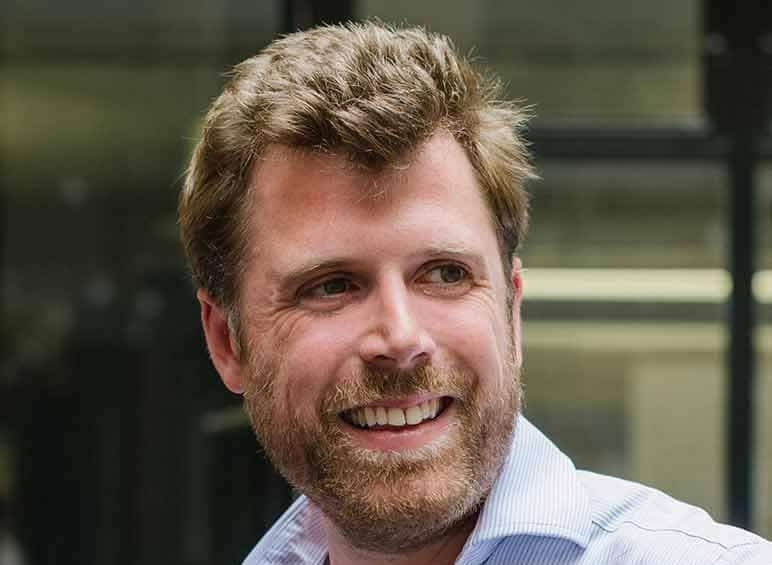We talk to Will Carmichael, the founder and CEO of RoosterMoney, an app that helps parents give pocket money for children to spend and save online. We chatted about the importance of talking to children about the importance of understanding savings goals, what they spend their money on and the ups and downs of running a fintech start-up.
Why did you set up RoosterMoney?
On a personal level my background is in advertising where I specialized in financial services. It was whilst at Ogilvy that I became interested in financial education, why we make financial decisions and particularly around risk and how our understanding of things impacts our decisions with money.
That really led me into understanding how young you can go with that education and the opportunity there. The great thing about money is that in the same way that it’s easier to learn a language when you’re young, if you start talking about money early, you can start building up financial capability and confidence and make decisions about money that will stick with you for life.
We’ve got a generation of kids growing up with technology and as we’re accelerating towards becoming a cashless society and we need to look at a way of making money relevant to that generation. A normal bank account doesn’t do that, and certainly doesn’t do it when you’re four or five. So we started RoosterMoney to help take children from their first steps aged 3 or 4, all the way up to 15 plus, when they get their own bank account.
Classrooms are great for teaching some of the fundamentals but money is contextual. You teach your kids how to cross a road safely by standing on the side of that road and that’s exactly the same with money. By doing it as part of the everyday you learn by doing and that’s why we see pocket money as an amazing vehicle to facilitate that.
There’s lots of research that’s been brought out, a) around looking at habit formation in money, and a lot of those habits forming by the age of seven, and b) showing that parents can be a great vehicle to kickstart that. That’s what RoosterMoney’s mission is – to transform the way millions of families talk to their kids and engage them with money.
What’s your ultimate goal for the business, where would you like to be in the future?
When we set out we were very clear that we wanted to make this a global business with big social impact, the UK and the US are our main markets right now, but we’ve got over 51 currencies being used in the app.
We offer a pocket money tracker app across all those regions and here in the UK parents can also graduate their kids onto a Visa debit card. What we’ve achieved to date really demonstrates that RoosterMoney can provide something that’s relevant across different countries and cultures and that’s hugely exciting. There may be taboos around talking about money but there is no culture that says teaching your kids about money is bad.
Q: It’s really interesting that you mentioned that talking about money is a taboo, all of the wealth managers I talk to, one of the things they really want to do is start educating children on the power of money, and the power of compounding investment, from an early age. Yeah, we were wittering about Joe Wicks, about how Joe Wicks can very happily go into a school and teach everybody about health, but the idea of a wealth manager going to a school and saying, right, we’re going to come in and teach everybody how to be wealthy, it’s very much a taboo to talk about investing essentially early on.
Any plans for RoosterMoney to move from savings to investing?
One of our core pillars at Rooster is building saving habits, over 40% of what kids earn on RoosterMoney is saved. If you compare that with just over the 5% that we as adults in the UK save that’s pretty impressive. Yes kids don’t have to cover their mortgage, but parents have the opportunity to reinforce a saving habit early on and teach the power of compounding interest in a way that should make that habit stick for life.
Theirs is absolutely an opportunity to make those products more accessible and we are already focused on savings, for instance you can set up a savings pot on RoosterMoney, you can actually set an interest rate, so the average interest rate is around 9% that parents pay which is pretty market beating! We help parents show their children how savings can grow in the long term. Whether you’re thinking about junior stocks and shares ISAs which lock in that saving habit for at least 18 years or another type of product, there are many options to engage with.
We do quite a lot of education too, producing primers around how to talk to your kids about different saving techniques, budgeting and also talking to parents about things like ‘what is a JISA?’, ‘what are premium bonds?’, what’s the return likely to be and explain to them how they work. I think there are great entry points for kids into long-term investment.
What do children generally spend their pocket money on?
We produce something called The Pocket Money Index which we release every quarter, and Roblox is definitely up there. LEGO has always traditionally been a blockbuster brand that kids save towards, and they save for really big ticket items, but there is definitely a shift now with Roblox coming in on top as more spending shifts online. Kids can be really focused and ambitious when they save, from big Lego sets through to phones and even holidays. The Nintendo Switch is another popular one at the moment, as well as, of course, traditional things such as sweets and books.
How difficult was it getting the idea for the business off the ground?
Along with a number of our investors, some of the team had been involved in building a virtual world to teach kids about money previously and RoosterMoney really came out of our experience of building that as we focused on a way to make pocket money easy to manage. We had a strong idea of what we wanted to deliver and we built and launched it in January 2016.
How do you generally promote RoosterMoney?
Word of mouth is really key to growth, nothing beats parents recommending us to each other. As reflected in our Appstore ratings, Rooster is something that parents are using every day and we’re so lucky we’ve got this amazing community who talk about us and help us grow. We market through multiple channels and we do a lot with the media. We’re seen as experts in our field, which has been really great for us, both here and in the US and we’ve been featured in The FT, on CNBC, the BBC and had features in the Wall Street Journal.
What’s been the best moment for running RoosterMoney so far?
It’s tricky, there’s nothing like launching the app for the first time. We worked incredibly hard in the build up to launching just after Christmas and it was exciting to have it out there.
The first sign-up that we had, of someone we didn’t know, was in Tasmania which was pretty amazing and I think that really showed us the opportunity. Some major inflection points were growing the business to the 27 people we are now and reaching over 200,000 parents and kids using us every month. When people are willing to change their jobs, come and join us and build this platform which is now rapidly growing it’s hugely exciting.
We launched our payment card in the summer last year which was another big inflection point for us, as well as growing our userbase in the US. Those have all been really big moments for us, and just a few of many hopefully still to come!
What’s been the hardest thing so far?
Like everyone setting up a business, there are challenges as you go along. Like any start-up you have to make decisions quickly and you have to realize that you won’t get them all 100% right.
This year’s been a challenging one as it has for everyone, we could never have envisaged a 2020 with Covid-19. But we’ve actually seen the move towards cashlessness actually accelerate and RoosterMoney is there to help with that transition, with our focus on keeping lessons about money and pocket money management relevant. But within that growth it’s been tough not being able to be with the team as much as we’d like to be (we have a remote first culture anyway) but regular in-person meetings are important.
What’s the one bit of advice you could give to parents and children on how they can make more of their money?
It has to be to have those conversations about money early and get engaged with money.
Our first serious conversations we have about money are often negative as adults. But if you start early with those talks you can make it really positive and that can be transformational later on in life.
By way of something specific, goal setting is such a great way of focusing your mind on what you want from your money. As adults it’s so much easier to set tangible goals and focus on achieving something specific rather than saying I need to put some money aside for a “rainy day”, or I need to put some money in an “investment”. What do you want out of it? What do you want to do with your money, is it about your retirement, is it about setting things up for your kids so that they can benefit in the future, is it a holiday or covering the cost of a boiler!
It’s the same for kids – get them to focus on an end goal. You can help them achieve it by cheering them on and indeed matching what they put in. Whether that’s a longer term saving goal or that pair of Nike Trainers they really really want!
Will Carmichael is founder and CEO of RoosterMoney

Richard is the founder of the Good Money Guide (formerly Good Broker Guide), one of the original investment comparison sites established in 2015. With a career spanning two decades as a broker, he brings extensive expertise and knowledge to the financial landscape.
Having worked as a broker at Investors Intelligence and a multi-asset derivatives broker at MF Global (Man Financial), Richard has acquired substantial experience in the industry. His career began as a private client stockbroker at Walker Crips and Phillip Securities (now King and Shaxson), following internships on the NYMEX oil trading floor in New York and London IPE in 2001 and 2000.
Richard’s contributions and expertise have been recognized by respected publications such as The Sunday Times, BusinessInsider, Yahoo Finance, BusinessNews.org.uk, Master Investor, Wealth Briefing, iNews, and The FT, among many others.
Under Richard’s leadership, the Good Money Guide has evolved into a valuable destination for comprehensive information and expert guidance, specialising in trading, investment, and currency exchange. His commitment to delivering high-quality insights has solidified the Good Money Guide’s standing as a well-respected resource for both customers and industry colleagues.
You can contact Richard at richard@goodmoneyguide.com



